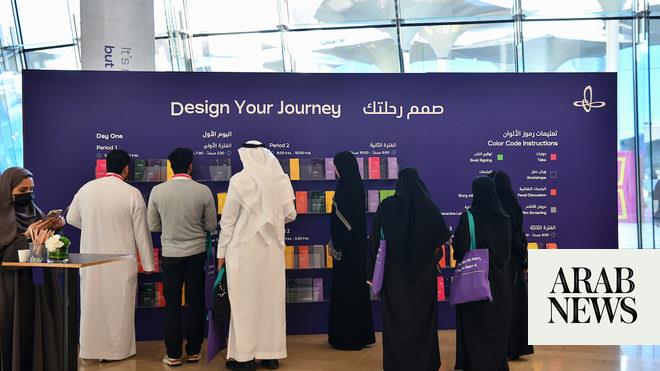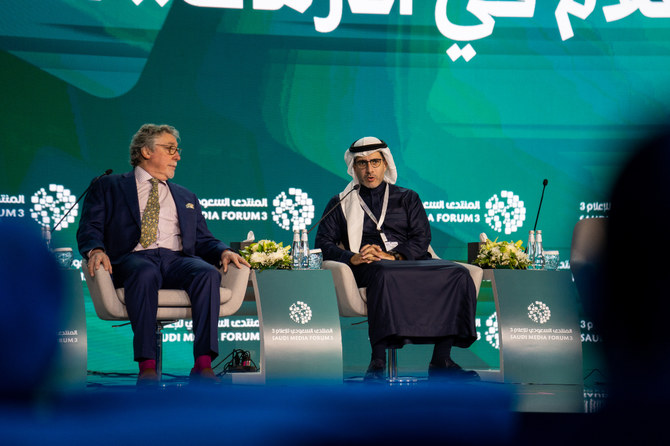
Chairman of the UAE Fatwa Council Sheikh Abdullah bin Bayyah: “Saudi Arabia’s decision to give priority to local pilgrims and limit the number of foreign pilgrims is in the best interest of Muslims
JEDDAH: Leading Muslim scholars, muftis and academics have discussed the urgency of addressing legal religious issues in the wake of the COVID-19 pandemic days before the Hajj pilgrimage is set to begin.
An international conference organized by the Muslim World League and the Fatwa Council of the UAE gathered Muslim scholars and academics from across the Islamic world to discuss their role in mobilizing community efforts in emergencies and crises.
The conference, “Emergency Jurisprudence: Parameters for Post-COVID-19 Pandemic,” held with the participation of the Organization of Islamic Cooperation, included jurisprudents, jurisprudence institutions, academics and thinkers from around the world.
Sheikh Nahyan bin Mubarak Al-Nahyan, minister of tolerance in the UAE, said that the role of Shariah (Islamic religious law) was a guide to public social order, a bastion of social safety and security.
It guided the lives of Muslims and served to protect individual and community interests as the COVID-19 pandemic has had unprecedented affect on all spheres of life including relations between nations and peoples, man and God, and individuals as well.
“Bearing responsibility, determination, perseverance and joint action all go hand in hand on the right path toward achieving success,” Al-Nahyan said.
“We are also emphasizing the role of the Ummah (Muslim community) scholars in mobilizing the community’s efforts to face emergencies and crises, and you focus specifically on the fact that scientific method and human progress are essential bases to confront this pandemic.”
He added that their role was an important call for regional and international cooperation to overcome problems and preserve public health.
Sheikh Al-Nahyan said that the conference was expected to lead to a number of sound fatwas, and to set out mentoring programs that would allow Muslim societies to be able to deal with the effects of the pandemic.
It would guide Muslims toward better managing their lives in accordance with a rational Islamic approach and to come up with suitable proposals in the areas of worship, beliefs and dealings, as well as finding means to achieve success in managing this crisis at the economic, health and social levels.
Sheikh Mohammed bin Abdul Karim Al-Issa, secretary-general of the Muslim World League and chairman of the Association of Muslim Scholars, said that the aim of the conference was to provide answers to urgent questions and outstanding issues in the context of a scientific inconsistency that affected the general public and the jurisprudence affected by the COVID-19 pandemic.
He noted that scholars of the Muslim Nation addressing the developments post COVID-19 through the forum would be able to produce clear legal rulings on various issues based on evidence, while carrying out their legal responsibility.
Commenting on Saudi Arabia’s limiting of pilgrims to perform this year’s Hajj, Chairman of the UAE Fatwa Council Sheikh Abdullah bin Bayyah said that “the decision to give priority to local pilgrims and limit the number of foreign pilgrims is in the best interest of Muslims who might risk contracting the virus which could spread of the continuous spread of the pandemic.”
He commended the Kingdom’s efforts in protecting Muslims’ lives and placing their safety and welfare first.
Sheikh Noor-Ul-Haq Qadri, the Pakistani Minister of Religious Affairs, said that Muslims acted on the basis of the fatwa of scholars and jurists, even more so since the outbreak of the pandemic. He praised the manner in which Muslims and institutions alike took it on themselves to issue and follow fatwas that added great value to the development of Islamic jurisprudence in the wake of such a pandemic.
The pandemic has provided many scholars with insight and knowledge to better educate and issue fatwas.
“The pandemic has showed the urgent need to get out of the narrow interpretation of the religious discourse with disregard to the jurisprudence of purposes and outcomes, while taking into consideration the diversity of time and place, the various conditions of people and the latest developments,” said Prof. Mohamed Mokhtar Gomaa, Egypt’s Minister of Awqaf.








